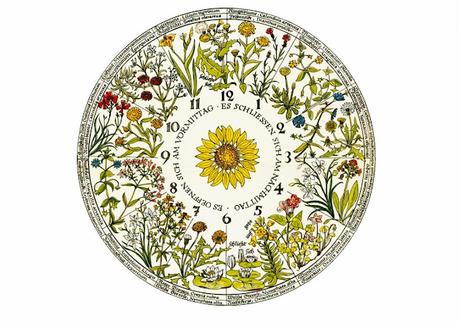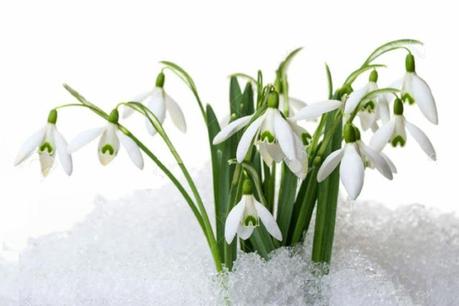Let’s start with some background. A circadian rhythm is a natural biological rhythm that regulates the sleep–wake cycle and repeats roughly every 24 hours. It can refer to any process that originates within an organism and responds to the environment. These 24-hour rhythms are driven by a circadian clock and they have been widely observed in plants, animals and fungi.
The first circadian cycle was observed in the 18th century in the movement of plant leaves by the French scientist Jean-Jacques d'Ortous de Mairan. Since then scientists have established that most organisms inherit the innate ability to keep track of time on a 24-hour scale. We know that birds use their biological clock during migration to help compensate for the changing position of the sun throughout the day. Chipmunks use their biological clock to properly time foraging so as to avoid predation (really?). We know about jet lag and we know that plants open at different times of the day.Before I come to the point about plants there is this:Electric fields may play a role in flowering. Apparently a blossom carries a negative charge, while an insect in flight holds a positive charge. I had no idea.Now for the actual point. In 1751 Swedish botanist and naturalist Carl Linnaeus noticed that certain plants opened at different times. I would just have made a note about it; but it was Linnaeus and he noted that there were three categories. The meteorici open and close with the weather. The tropici follow the changing hours of daylight. And the aequinoctales, Linnaeus wrote, “open precisely at a certain hour of the day and generally shut up every day at a determinate hour.”Can you spot where we’re going on this? He then went on to use certain species of flowering plants to design A Flower Clock. How brilliant is that?
 He designed the clock by arranging the selected species in a circular pattern that indicated the time of day by the flowers that were open at each given hour. For example, among members of the daisy family, he used the hawk's beard plant which opened its flowers at 6:30 am and the hawkbit which did not open its flowers until 7 am.Okay, so you wouldn’t want to use this method of telling the time to catch the 09.17 to Birmingham New Street but if that’s not a problem here’s a guide.
He designed the clock by arranging the selected species in a circular pattern that indicated the time of day by the flowers that were open at each given hour. For example, among members of the daisy family, he used the hawk's beard plant which opened its flowers at 6:30 am and the hawkbit which did not open its flowers until 7 am.Okay, so you wouldn’t want to use this method of telling the time to catch the 09.17 to Birmingham New Street but if that’s not a problem here’s a guide.Flower opening times:
5:00 am: Poppy
6:00 am: Bindweed
7:00 am: Coltsfoot
8:00 am: Cowslip
9:00 am: Daisy
10:00 am: Sorrel
11:00 am: Common sow-thistle
12:00 pm: Iceplant
Flower closing times:
2:00 pm: Chicory
3:00 pm: Pumpkin
4:00 pm: Coltsfoot
4:00 pm: Sorrel
5:00 pm: Water lily
6:00 pm: Poppy
9:00 pm: Cowslip
I’d better finish there as I need to get this in the post before half past water lily. (Acknowledgements to: Gardena Flowers, Science Direct, NCBI and others.)

A bit of a talking to
The thing is (I said)
is that I think you need
to get a bit of a grip
look at yourselves
heads scrunched together
hidden in these woodlands
year after year
as if you’re ashamed
of being seen in simple white
and that’s the point
(raising voice slightly)
those summer plants are
just plain gaudy
a touch of frost and they’re off
you’re better than that
you should be proud
not in a boastful way (I added)
but I’ve seen you
fighting your way through snow
living off the land
not needing supplies
Napoleon couldn’t do that
So this time next year
it’s shoulders back and chins up
(I gave a demonstration)
you’d better be out of here.
After: The Force That Through the Green Fuse Drives The Flower
First published in Dear Dylan, Poems after Dylan Thomas Anthology, Indigo Dreams Publishing, 2021.
Thanks for reading, Terry. Email ThisBlogThis!Share to TwitterShare to Facebook
